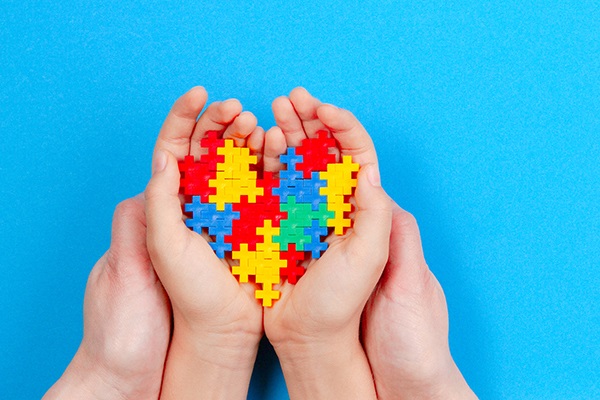
Popular Locations
- NEMG Internal Medicine - New Haven
- NEMG Internal Medicine - Orange
- NEMG Internal Medicine - Trumbull


According to the Centers for Disease Control and Prevention (CDC), approximately one in 59 children is identified as having Autism Spectrum Disorder (ASD). The increase in cases is largely associated with changes in the criteria for diagnosis, heightened public education about the disorder and improved training of the medical community regarding how ASD presents throughout the lifespan. ASD is found in all ethnic, racial and socioeconomic groups. There is no blood test or imaging studies to diagnose the condition. Just as the number of ASD cases has increased over the last several decades, so has its related myths and misconceptions.
Only a few of the many myths about ASD will be presented here to separate fact from fiction and to raise awareness of this widely misunderstood disorder:
MYTH: Autism is a mental illness.
FACT: ASD is a developmental disorder stemming from changes in the brain before the child is born; it is not a mental condition that develops after birth. ASD consists of impairment in social interactions, problems in communications and display of repetitive behaviors. Sensory abnormalities often occur as well. Since autism is a spectrum disorder, each person’s symptoms differ in presentation and severity. Some may have intellectual disabilities and limited speech while others are high functioning, speaking fluidly, going to college and working. Most, but not all, individuals with ASD may have a co-occurring mental illness (depression, anxiety, ADHD, OCD, etc.).
MYTH: Autism is caused by vaccines.
FACT: There is no evidence that childhood vaccines cause autism. A 1998 study of only 12 patients linked autism with the childhood vaccines, but in 2010, the study was retracted, determined to have falsification of data and ethical violations. Removal of the alleged causing agent (thimerosal) from the vaccine has not resulted in a decreased number of cases. In fact, the opposite has been the case. Experts have not yet determined what causes ASD but agree that it is a complex entity of unknown origin with biological and genetic elements possibly combined prenatally with environmental factors.
MYTH: Autism can be cured.
FACT: There is currently no cure for ASD. But early detection and intensive behavioral intervention can often decrease severity of symptoms and help those with the disorder develop better social skills and improve emotional regulation and adaptive skills for daily living. No medications can cure the core symptoms of language and social deficits. But they can improve irritability, and co- occurring conditions. Special diets, vitamins and supplements have not produced significant positive results in ASD.
MYTH: Autistic children do not like to socialize.
FACT: Although some children with ASD prefer to be alone, most have a strong desire to make friends. But, because of their poor social and communication skills, they find it difficult to engage with others in the typical fashion. They present as awkward because they miss social cues, follow strict rules and may not understand humor. Their interest in socializing usually increases in adolescence, however, they often encounter lack of acceptance from peers, which can lead to isolation and depression.
MYTH: Autistic individuals are dangerous.
FACT: It is very rare for an ASD person to act violently out of malice. The vast majority are calm, kind and willing to help out. The violent outbursts exhibited by some ASD individuals are usually self-directed and driven by frustration or sensory or physical over-stimulation.
NEMG staff provide several services for individuals in the autism spectrum, including: psychiatric evaluations, individual, family and group therapy, as well as occupational therapy, physical therapy and speech therapy. Children and their families are referred to other community agencies for additional services such as neuropsychological evaluations, ABA, parenting skills training, art and equine therapy, mentoring services and job coaching.